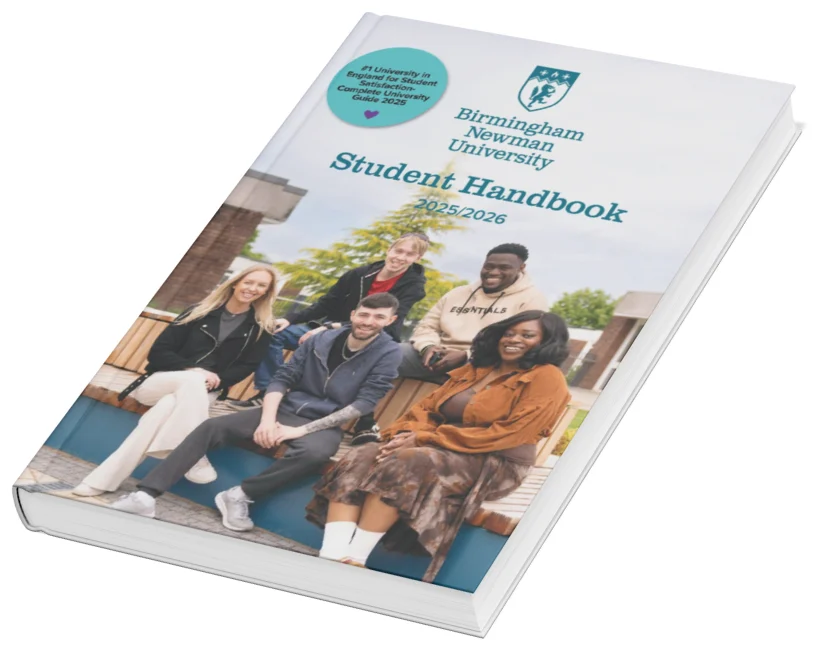Early Childhood Studies (top-up)
Welcome to Early Childhood Studies (top-up) at Birmingham Newman University.
We are delighted to welcome you to the Early Childhood Studies (top-up).
During welcome week, you will get to meet the teaching staff and your fellow students. We have a range of exciting activities planned that will make you feel at home as you begin your studies with us.
We will be outlining some of the modules that you will be studying and we will do our best to answer any questions you may have. Here is some information that you will find useful as we welcome you to our course.
Welcome Week Services Fair – Your Chance to Meet the Teams
As part of your induction to Birmingham Newman University, our Services Fair is your opportunity to meet the teams who will support you throughout your studies and explore the services available to help you succeed.
Dates & Times
- 1 September – 11am – 2pm
- 4 & 5 September – 11:30am to 1pm
- 15, 17, 18 & 19 September – 11am to 2pm
Note: The Students’ Union Welcome Fair will take place on 16 September – see their website for more details.
You’re welcome to drop in and take part on any of the fair dates — it doesn’t have to be the day of your induction.
- Chat with Careers about your future plans, grab some sweets and an employability bag, and register on My Career for a chance to win a £25 Amazon voucher.
- Make a badge with our Environmental Officer, download the OurNewman app to spin the wheel and win a prize, and join the Library for Q&A activities and their Prize Every Time Lucky Dip.
- Advice & Wellbeing will be offering stress tests, sound therapy, and an Affirmation Station, while E-Learning invites you to take their “Who You Gonna Call?” quiz for a prize draw entry.
- Try the Sport team’s exercise bike challenge and visit the Chaplaincy to choose the “word of the day” and share some positivity.
And that’s just the start — there’ll be many more services, activities, and opportunities to explore each day of the fair. Come along, get involved, and make the most of what’s on offer!
The Disability & Inclusion team and the Advice & Wellbeing team will be holding drop-in sessions on campus from 15–19 September.
Drop-in sessions: Dates & Times
- 15 September – 11am to 2pm: DW102 (Dimple – Disability & Inclusion)
- 16 September – 11am to 2pm: DW101 (Jas – Advice & Wellbeing)
- 17 September – 11am to 2pm: DW102 (Jas – Advice & Wellbeing)
- 18 September – 11am to 2pm: CH116 (Jas – Advice & Wellbeing)
- 19 September – 11am to 2pm: CH004 (Dimple – Disability & Inclusion)
No appointment needed – just drop in for advice, support, and guidance
Student Services and Support
Key information
Induction
- Thursday 18 September 2025
Teaching starts
- Week beginning: 22 September 2025
Subject Leader
- Dr Jane Beniston
- j.beniston@staff.newman.ac.uk
Stay connected with OurNewman app
OurNewman is your go-to place for everything you need as a Birmingham Newman student. With the app, you can:
- Receive personalised notifications about your course, timetable, and deadlines
- Access to your files, emails, and course resources
- Find support services and keep up to date with campus events
Student Handbook

